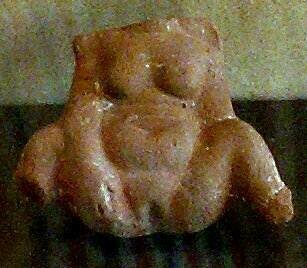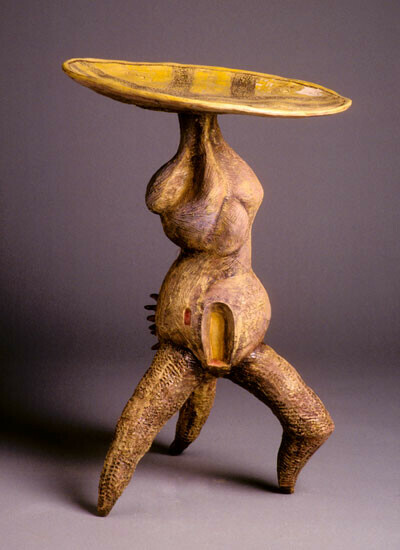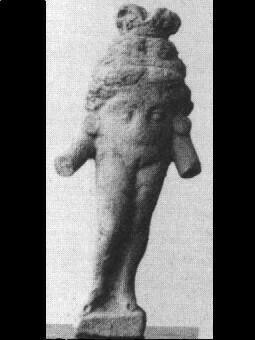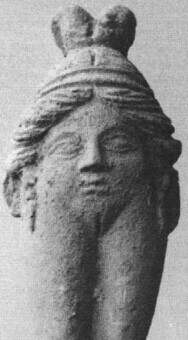| Eleanor Hannan and Elizabeth Dancoes's 1001 Funny Things you can do with a Skirt | Stories and art on the ancient skirt gesture of Anasyrma |
|
Home
Bio
Story Galleries
The Four Powers of the Anasyrma
Lunch
Knowing
She Who Walks
Silly Skirt Poem
Suitcase
Voyeur
Out Picking Myrtle
SillySkirtTalk
Elizabeth Reading
About Lunch
How We Met and Began
A Few things You Should Know
Baubo
Making the Skirt
About Knowing
Exhibitions
Invitations for Shows SPS
1001 Funny Things Events
Skirt Power Stories Blog
Guestbook
Mailing List
Links
Contact
|
Baubo as the source for Anasyrma
Ancient stone female figurines - lifting the skirt, exposing the vulva as a healing reminder of the 'source' To begin, the basic plot elements and relationships in the Greek Myth that were our jumping off point. Details often vary but that is the nature of myth. The goddess Demeter has tangled and long-traveled Proto-Indo-European roots, some finding their origins (almost definitely) in Asia Minor and (possibly) in Crete, that identify her as both a household deity and overall provider of sustenance. Mother Demeter and daughter Persephone are very close (Robert Graves would have us interpret them as two phases of the triple goddess but that is another story). Persephone goes off with some friends to pick flowers (what type of flowers may add a grace note). A hole opens in the earth and Hades snatches her down into it (an archetypal example of the submergence/burial of the feminine). He’s made up his mind she’d make a great wife/queen of the Underworld. Does the myth speak to the transition between matriarchy and patriarchy in ancient Greece and Asia Minor? Is the abduction that is its inciting event an articulation of a real threat, an historical event? Were the Eleusinian Mysteries a celebration in hope of a return to values and a way of life still remembered?
|



